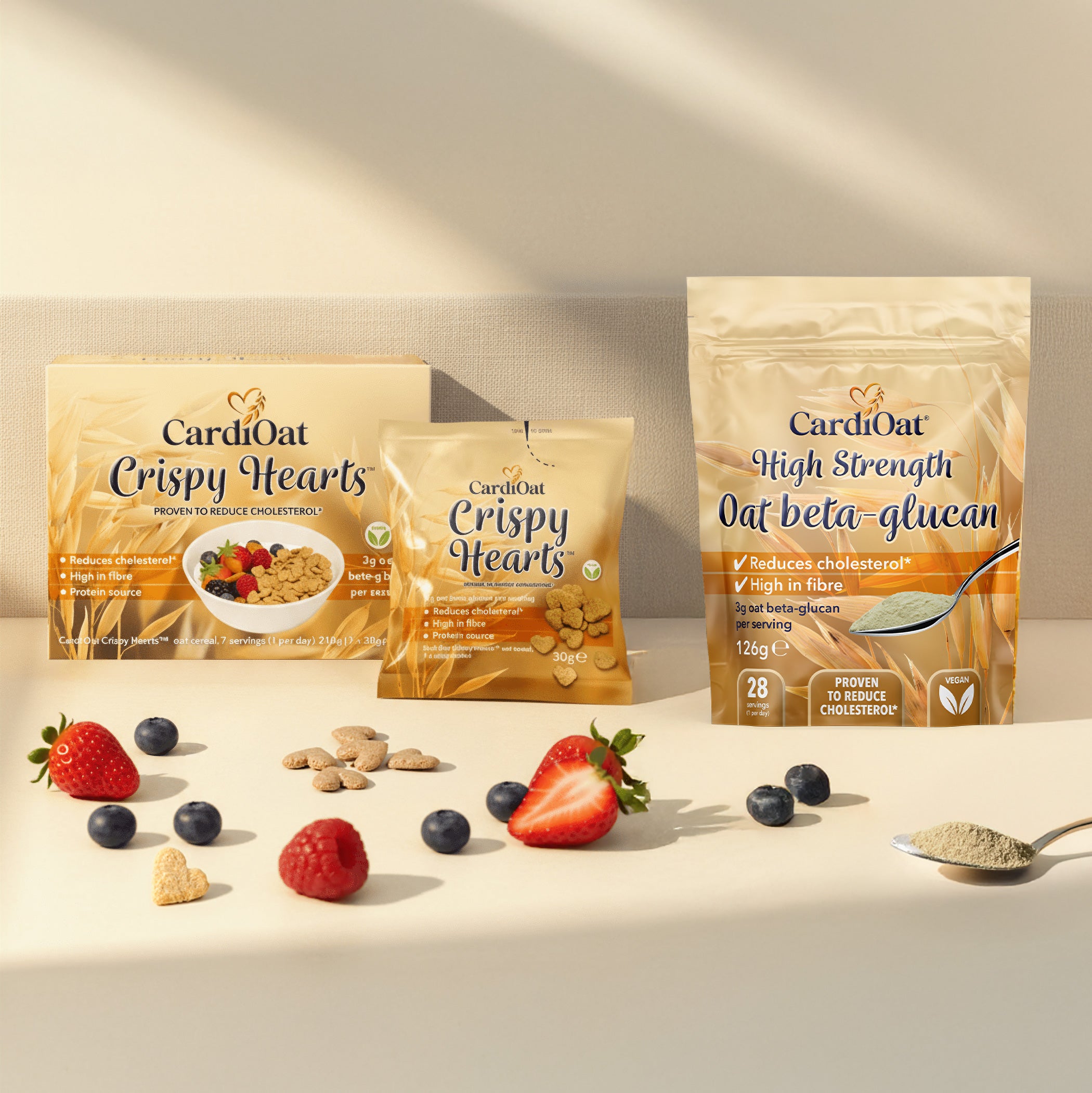The foods we eat and the types of nutrients we provide our body can have a big impact on heart health. Maintaining a healthy diet can help control weight, cholesterol levels and blood pressure, ultimately reducing the risk of developing coronary heart disease. Specific micronutrients and botanicals in the diet can also play a role in supporting heart health, either by supporting its function, or by delivering protective antioxidant compounds into the blood vessels and the heart. Food supplements can provide these foods and specific nutrients in concentrated and easy to consume doses, enabling you to easily look after your heart health on a daily basis.
Ingredients commonly found in food supplements that are important for heart health include:
Fish Oil
Fish oil contains a balance of omega-3 fatty acids, specifically EPA (eicosapentaenoic acid) and DHA (docosahexaenoic acid). This type of fat has been shown to decrease triglycerides (a type of fat) and increase HDL-cholesterol levels, improve blood vessel elasticity and thin the blood, making it less likely to clot and block blood flow.
- DHA and EPA contribute to the maintenance of normal blood triglyceride levels
- DHA and EPA contribute to the maintenance of normal blood pressure
- EPA and DHA contribute to the normal function of the heart
Flaxseed Oil
Flaxseed oil is another rich source of omega fatty acids, specifically the omega-3 fatty acid, Alpha-Linolenic Acid. A daily intake of 2g of Alpha-Linolenic Acid contributes to the maintenance of normal blood cholesterol. Maintaining normal blood cholesterol is important for heart health. Too much cholesterol circulating within LDL in our bloodstream leads to fatty deposits developing in the arteries. This causes the vessels to narrow and they can eventually become blocked. This can lead to heart disease and stroke.
Vitamin E
Vitamin E contributes to the protection of cells from oxidative stress. It can protect blood vessels by preventing the oxidation of LDL cholesterol (lipid peroxidation). Lipid peroxidation can result in atherosclerosis, a condition that causes the buildup of plaques and the hardening of the arteries. Atherosclerosis contributes to the development of cardiovascular disease.
Thiamine (Vitamin B1)
Thiamine is an essential B vitamin that plays an important role in cardiac function. Vitamin B1 deficiency leads to dysfunction of the cardiovascular system, commonly known as wet beriberi. This condition puts the heart under pressure, causing it to beat faster. An adequate intake of thiamine on a daily basis is essential to maintaining healthy heart function.
Glucomannan
Glucomannan is a natural, water-soluble fibre, extracted from Konjac. When consumed with water, Glucomannan forms a thick gel in the digestive system. This can be beneficial in maintaining and losing weight as it increases satiety and reduces the desire to eat excess calories. The positive impact this has on weight directly contributes to heart health, as being overweight puts stress on the heart, and is a risk factor for heart disease. Glucomannan also contributes to the maintenance of normal blood cholesterol levels, further supporting heart health.
Garlic
Consuming supplements containing garlic extract or concentrated garlic powder has been linked to protecting heart health. Garlic contains a chemical called allicin, which is believed to have antioxidant and antiinflammatory properties. It is also believed to reduce blood pressure, increase the excretion of cholesterol and prevent atherosclerosis.
Lifeplan provides a variety of different supplements that contain these ingredients, either in isolated forms, or in combination with other ingredients to deliver a range of health benefits.





Leave a comment
This site is protected by hCaptcha and the hCaptcha Privacy Policy and Terms of Service apply.